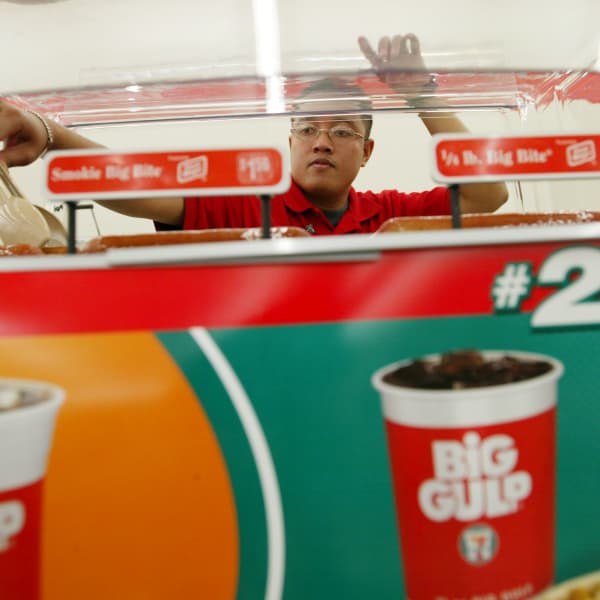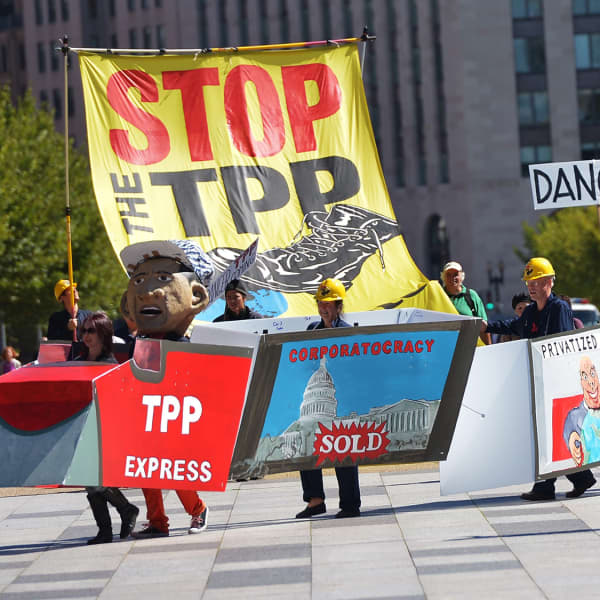As soon as NBA megastar LeBron James announced in July that he was returning to play for the Cleveland Cavaliers under a two-year, $42.1 million contract, the numbers started going up. We're not talking about points on the scoreboard or victories on the court . . . We're talking money.
The return of the native son—James grew up in Akron and played for the Cavaliers from 2003 to 2010—is being felt in more places than the Cavs' ticket office. Local businesses are jumping for joy. Literally.
"When I heard the news, I started jumping up and down a few times," said Sean O'Donnell of Flannery's Pub, located right near the Cavaliers' home at Quicken Loans Arena. "We have to hire more staff for the fall because of this. There's definitely a hiring blitz going on. My staff will go up by a third, now I know LeBron is coming."
"LeBron is a walking economy," added Nick Kostis, managing member of Pickwick & Frolic, a theater-and-restaurant complex about four blocks from the arena. Kostis suggested a 10 percent to 12 percent rise in hospitality revenues, based on what they lost during th years James had fled to Miami.
Dueling economists
LeBron's second coming will certainly have a positive economic impact for C-Town. Just how much remains to be seen, but several people jumped on board with their predictions.
LeRoy Brooks, a professor of finance at the Boler School of Business at nearby John Carroll University, came up with a figure of up to $495 million, based on predictions of increases in ticket sales, downtown business, out-of-town visitors and new jobs.
Time.com broke that down into manageable bites of rose-colored forecasts that included $114 million in regional spending and $195 million in increased ticket sales that would go right to the Cavs, not to Cleveland. Other reports incorrectly had Cuyahoga County officials calculating a similar number, which also received lots of attention.
The larger, overly rosy figures were presented by the media as gospel but were quickly jumped on by economic debunkers, including another professor, Victor Matheson of the College of the Holy Cross, who called it "the worst estimate I have seen in my career."
He added that a lot of the estimates didn't take into account the fact that "all the people in Cleveland were figuring out something else to do with their time and money while he was gone. It might be the Cavs' gain, but it will come at someone else's expense."
Cuyahoga County Executive Ed FitzGerald reported that his office came up with about $50 million in direct impact based on new jobs to deal with the increase in crowds of fans. The Cleveland Plain Dealer chimed in with $48 million (and another $150 million if James leads the Cavs to several rounds of playoffs).
Indeed, most of the writers discussing the overreaching estimates pointed out that the vast majority of any increase to the area will go directly to the Cavaliers, not to the general population or businesses. Predicting true economic impact is almost as hard as guarding LeBron in the paint—sometimes you just have to throw everything at him and hope that something works.
Facts, not numbers

Whatever the actual dollars turn out to be this time around, there's no mistaking the excitement that James' return is bringing. And with that excitement will come crowds and money, local businesses hope. A sign posted on the Pickwick & Frolic marquee plays off James' most famous nickname: "The Kingdom lies where the King resides."
"It will absolutely help small businesses every night there is a game," agreed David Gilbert, chairman and CEO of the Greater Cleveland Sports Commission. "You'll have the Cavs going from 14,000 people a game to 20,000-plus a game. Multiply that by 41 home games and, we hope, some postseason games."
Gilbert also spoke about the potential "substitution effect" mentioned by others. "We show that 40 percent of individual ticket purchasers for the Cavs come from out of market. So those are not suburban folks shifting dollars, but out-of-market money coming in."
O'Donnell points to another benefit: the spending power of people without tickets to the games. "It's not just the people going to the game. People come downtown to eat and drink and be part of the atmosphere. We had quite a few games the last year he was here [2010], when there was no difference when the game started. We were full all night. I think we'll turn over our tables two or three times a night instead of just once."
"The anticipation will be greater than before," said Kostis. "If you can't get in the arena, you'll want to be around it. There will be a buzz that will translate out of the seats in the arena to the seats around the arena."
Read MoreLeBron James to opt out of last 2 yrs of contract: Report
The Cavaliers themselves are certainly seeing the positive effects financially. Within eight hours of the announcement by the four-time NBA MVP, season ticket sales were at capacity, capped for the upcoming season. (One analyst, Peter Schwartz of Christie & Associates, claimed that the Cavaliers franchise was now worth $1 billion dollars with James on board, a nearly 100 percent increase.)
Cuyahoga County will certainly reap the tax benefits from those ticket sales—including $3.5 million in savings on debt acquired during renovation of the Cavs' home—along with the increased taxes from sales at local businesses. Again, predictions are worth the digits they use up.
While the economic impact waits for tip-off to be truly felt, the psychological uptick is already happening.
Good for the soul
"Just as important as changing the [negative] outsider perspective is changing our own feeling about the city," said Gilbert. "We have suffered from a lack of self-confidence in the community and have this 'woe is us' attitude, but we're starting to see a change in that as well. That could be a bigger impact than the perception of Cleveland by outsiders."
Read More5 ways states are luring small business
In fact, James himself said that was one of his main goals in coming home. As he wrote in his Sports Illustrated article, "I want kids in Northeast Ohio ... to realize that there's no better place to grow up. Maybe some of them will come home after college and start a family or open a business. That would make me smile. Our community, which has struggled so much, needs all the talent it can get."
"This is arguably the greatest and most recognized athlete on the planet, who in his prime is saying that I love the place I'm going to," added Gilbert.
"He went to find his fame and fortune elsewhere," said Kostis, "but LeBron carries his fame and fortune with him. Now he's coming back to share it with his hometown."
"The vibe, the feel, the energy is all different now. Cleveland is definitely on a roll," said O'Donnell.
That's a feeling, of course, you can't put a price on.




